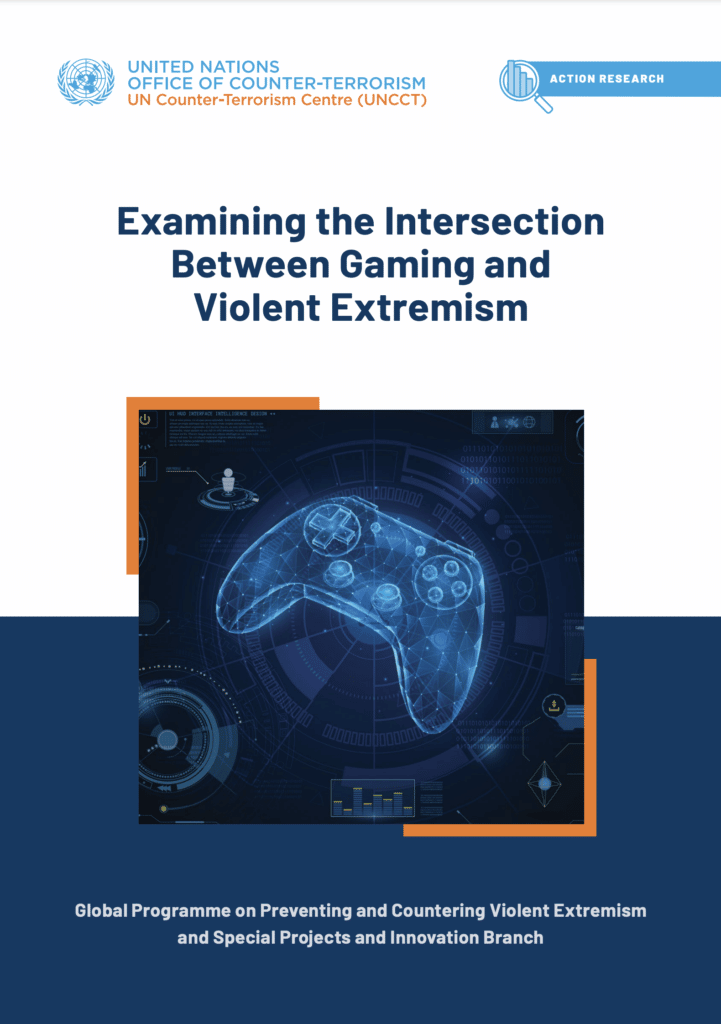UN Report Examines Gaming And Violent Extremism
Justin Hendrix / Oct 6, 2022
The United Nations Office of Counter-Terrorism (UNOCT), established by the General Assembly in 2017, has a mandate to do what its name would suggest: to effectively prevent and counter terrorism. Part of its activities include producing research on terrorism and violent extremism. Its latest report, Examining the Intersection between Gaming and Violent Extremism, is the product of expert consultations, focus groups and a survey of gamers conducted last year by Amarnath Amarasingam, Assistant Professor, Queen’s University and Linda Schlegel, Founding Member of the Extremism and Gaming Research Network (EGRN).
The report notes that “one third of the world’s population”– some 3 billion people– play online games, and that particularly during the pandemic, “communities in gaming spaces became a substitute for the lack of offline interaction and grew exponentially.” But while the “the potential nexus between gaming and violent extremism has gained considerable attention in recent times, research findings are sparse,” write Amarasingam and Schlegel. Dispelling of the notion that there is any causal link between playing video games– even the most violent of them– and aggression or violent behavior, the researchers set out instead to explore how terrorists and violent extremists nevertheless use online gaming spaces and communities to “strategically and organically” accomplish their goals.
Focus group participants in the study assessed that the lack of moderation, considerable audience reach, and the networking and customization affordances of gaming platforms all “make gaming spaces more prone to being exploited by extremists,” with the lack of moderation permitting them to “disseminate their ideas widely through audio conversations while playing, on livestreams and through chats.” Customization affordances, particularly in games that let players build their own environments, such as Minecraft, Fortnite, and Roblox, appeal to extremists who seek to spread their views and communicate with individuals, just as much as first person shooter or strategy games.
The study identified “four important ways in which games and gaming culture are used by extremists,” including giving extremists a venue to make certain people “feel wanted and heard.” Others include using gaming related content to advance propaganda that is often difficult to discern as extremist, and building on “toxic masculinity” in gaming subcultures. Different extremists groups exploit gaming spaces in different ways. Jihadists, for instance, use “videogame aesthetics to make their propaganda more appealing to young Western audiences.” While right-wing extremists may do the same thing, they more actively exploit the “boys’ club” and the “misogynistic and toxic parts of gaming culture” in line with their beliefs.
The survey found that “the toxicity found in gaming communities was by far the respondents’ most prominent complaint about both games and gaming-adjacent platforms,” with “so many toxic people” targeting women, people of color, and LGBTQ+ gamers. The report says that “30% to 34% of respondents noted that they had witnessed ‘a great deal’ or ‘a lot’ of misogyny, racism/xenophobia or homophobia” in gaming spaces. Discord (16.5%) and Twitch (11.1%) were identified as the top platforms where toxic behavior occurs most often.
While the researchers are careful to caution that “all actors involved should take care not to suggest that gaming as such is a problem to be solved, either explicitly or implicitly” and that readers “should take into consideration that there is currently no evidence that being a gamer or frequenting gaming spaces makes individuals more susceptible to radicalization processes,” they do suggest a research agenda to acquire more evidence on the use of gaming spaces by extremists, and to consider what interventions might disrupt their behaviors. The report promises that through “the Extremism and Gaming Research Network, UNOCT will be involved in the design and implementation of innovative projects, support research efforts to gather more evidence and, subsequently, extrapolate recommendations for PCVE interventions using gaming.” Watch this space.
Authors

